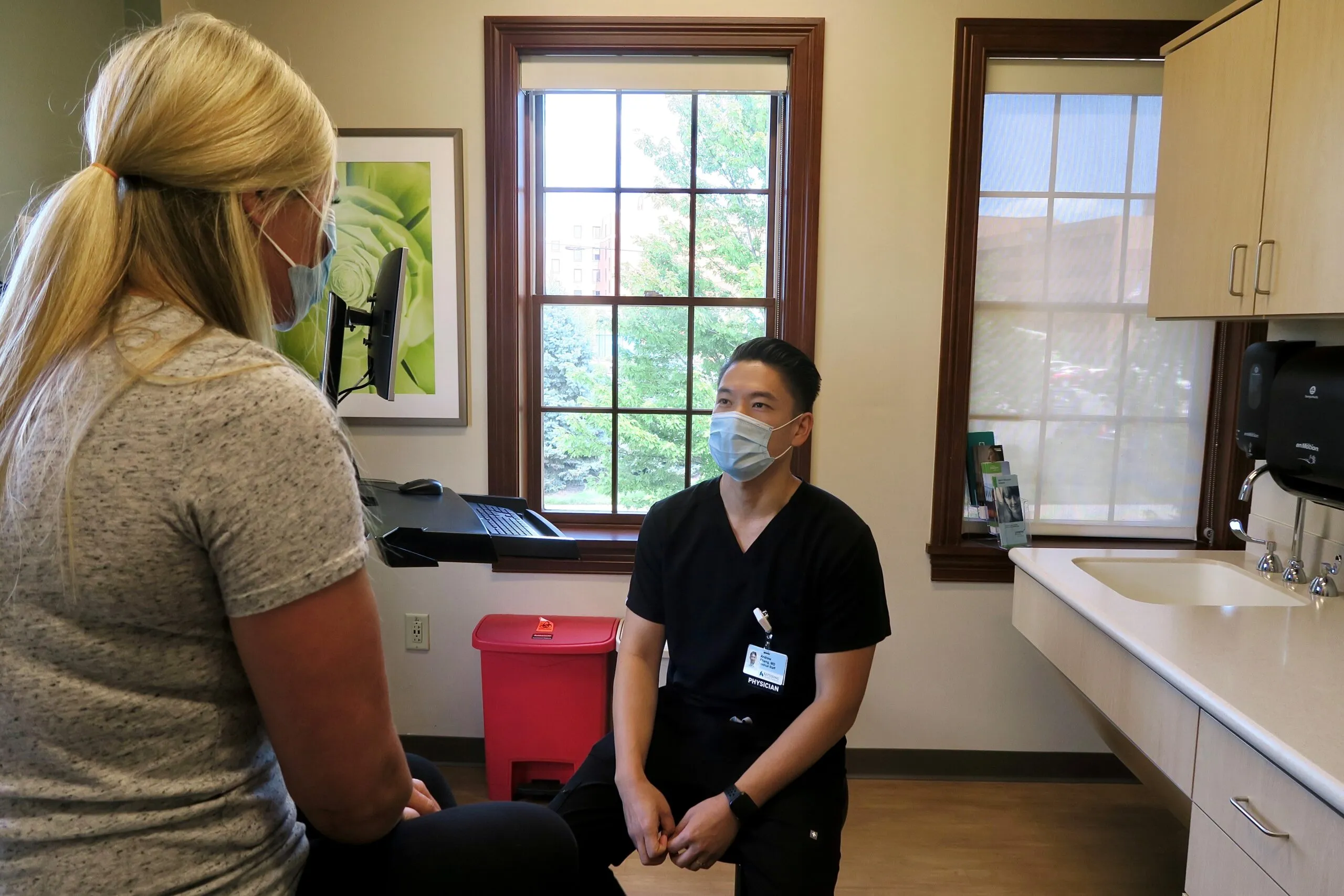Women’s Health
Want to learn more about this at Kettering Health?
After childbirth, it’s normal for women to worry about their baby. But they should also take time to monitor their own health and check for symptoms of serious disorders like postpartum preeclampsia.
What is postpartum preeclampsia?
Postpartum preeclampsia is identified by high blood pressure and protein in the urine and develops soon after childbirth. According to OB-GYN Dr. William Alter, the disorder doesn’t always produce protein in the urine, but women could see other organ problems.
“Over time, patients could develop disseminated intravascular coagulation, a vascular problem. Their organs can start shutting down if not taken care of promptly,” says Dr. Alter.
It is important to get diagnosed quickly because the disorder can worsen significantly and cause seizures and other complications.
Diagnosis and symptoms
Postpartum preeclampsia can have a variety of symptoms. Notable symptoms include:
- Headaches
- Vision changes such as blurry vision or blacked-out vision
- Severe abdominal pain
Your doctor will get a blood pressure reading. If high, they will perform blood work and a urine test to look for protein and other factors in the blood.
Risk factors
Women should be aware of several risk factors of postpartum preeclampsia.
These include:
- If this is the patient’s first pregnancy
- History of preeclampsia in a previous pregnancy
- Patients younger than 18 or older than 40
- History of high blood pressure, kidney disease, diabetes, autoimmune diseases, vascular diseases, or even obesity
Treatment
Magnesium sulfate is the most common treatment for postpartum preeclampsia. “This is an IV medication they get for about 24 hours,” Dr. Alter says.
Prevention
According to Dr. Alter, there is not much that can be done for prevention. However, if the patient has a history of high blood pressure or preeclampsia, they can take baby aspirin during pregnancy.
“Also, controlling blood pressure if you have a pre-existing condition is going to be important,” Dr. Alter says. “Postpartum preeclampsia usually just develops, and there is no way to prevent it. If you start having symptoms, call your physician and get checked out immediately.”











